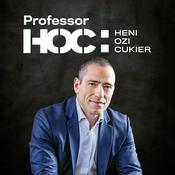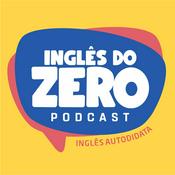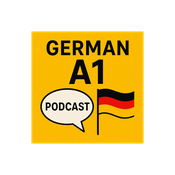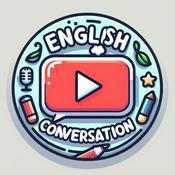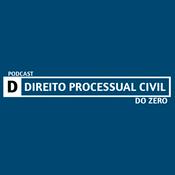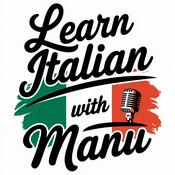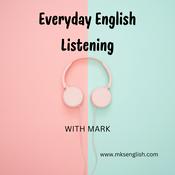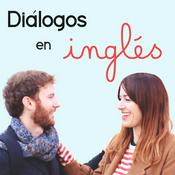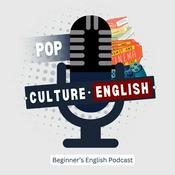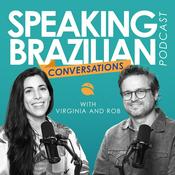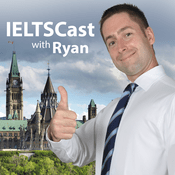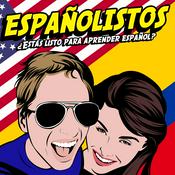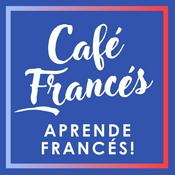47 episódios
- Send us a text
In this powerful episode of Complex Kids, Simple Solutions, Michelle sits down with parenting coach and BCBA Melissa Schulz to unpack what actually helps when parenting strong-willed, highly sensitive, and neurodivergent kids.
With 20 years of professional experience—and lived experience as a mom of neurodiverse kids—Melissa shares why so many behavior plans fail families, how guilt keeps parents stuck, and what it looks like to meet kids (and parents) where they truly are.
This conversation is honest, grounding, and deeply validating for parents who are exhausted from “doing everything right” and still struggling.
Melissa shares:
Why Behavior Isn’t the Problem: How focusing only on stopping behaviors misses the real needs kids are trying to communicate.
The Limits of Traditional ABA: Why handouts, “just ignore it,” and perfect plans fall apart in real family life.
The Power of Baby Steps: How unrealistic expectations set kids—and parents—up to fail, and why slow progress is real progress.
Regulating the Parent First: Why nervous system work for parents is the missing piece in behavior change.
Dropping the “Should”: How letting go of comparison and timelines can restore joy and connection.
Skills Over Control: Why kids do well when they can, not when they’re forced to comply.
Quote to Tape on the Fridge:
“It’s not your child’s job to learn the way you teach. It’s your job to teach the way they learn.”
👤 About Melissa Schulz
Melissa Schulz is a parenting coach, board-certified behavior analyst, and counselor who supports families raising complex kids. After building and running a large ABA company, Melissa shifted her work to focus on parents—bridging the gap between clinical knowledge and real-life parenting. Her work centers on compassion, regulation, and practical strategies that actually fit into daily life.
🔗 Connect with Melissa Schulz
Facebook: www.facebook.com/confidentlymommin
Instagram: www.instagram.com/confidentlymommin - Send us a text
In this moving episode, Michelle talks with Robert DeLena about his journey parenting his son, Ryan. They discuss the evolution of a "strong-willed" child into a professional outdoor adventurer, the pitfalls of early 2000s behavioral interventions, and how a chance trip to a ski hill changed their lives forever.
Robert shares a raw, honest perspective on moving past clinical labels and restrictive protocols to find the environment where his son could finally thrive.
Robert shares:
The Trap of "High Strengths, Deep Weaknesses": How early neuropsychology flagged Ryan as "imbalanced," leading to a cycle of therapeutic schools that focused more on managing behavior than understanding the child.
The Trauma of Restraint: A candid look at the early days of ABA and "holds." Robert discusses the PTSD and physical toll these interventions took on Ryan and the family before they decided to walk away.
The Power of Environment: Why Ryan, who "relished disobeying" in a rigid classroom, became a focused leader on a mountain.
Unraveling the Meds: The long process of questioning psychiatric diagnoses (like Bipolar disorder) and realizing that some behaviors were responses to environment and over-medication rather than inherent traits.
The "Graveyard of Failed Attempts": Why traditional hobbies like baseball or piano often end in tears for complex kids, and the importance of cutting your losses until you find the "spark."
Sibling Dynamics: The "jealousy factor" for siblings who don't act out and how the intensity of supporting a complex child can unintentionally sideline others in the family.
From "At-Risk" to Professional Guide: How Ryan went from needing a one-to-one aide to go to the bathroom to living independently in a van and guiding kids on dangerous rock faces.
Quote to Tape on the Fridge: “If your instincts tell you that you know something the doctors don't, you don't have to listen. Trust your gut.”
👤 About Robert C. DeLena
Robert DeLena is an author and parent advocate who transitioned from a "Type A" rigid parenting style to one centered on autonomy and adventure. He is the author of Without Restraint, a dual-perspective memoir written alongside his son, Ryan, detailing their journey through the mental health system to the mountains of the world.
🔗 Connect with Robert DeLena
Facebook: Robert C. DeLena
Instagram: @robert.delena
LinkedIn: Robert C. DeLena
Follow Ryan’s Adventures: Instagram @ExtremeRyan - Send us a text
In this episode, Michelle sits down with Bailey Payne, BCBA, to talk about what truly helps complex kids and their families when behavior feels overwhelming and unclear. They explore why behavior is rarely simple, why traditional approaches often fall short, and how real change begins by adjusting the environment—not trying to fix the child.
Bailey shares a practical, family-centered perspective on behavior analysis, emphasizing alignment, sustainability, and trust over rigid protocols.
Bailey shares:
Why behavior isn’t random. Complex behavior often has multiple causes that can shift quickly, making simple explanations ineffective.
Why environment comes first. How we give directions, offer choices, and structure daily life matters before addressing behavior itself.
The limits of traditional ABA. Clinic-based models, high turnover, and poor fit can leave families frustrated and unheard.
Why parents should trust their gut. If an approach feels wrong or unsustainable, it’s okay to move on.
Why older kids are overlooked. Support often drops after early childhood, leaving teens and young adults without meaningful services.
What in-home support looks like for teens. Life skills like shopping, budgeting, work readiness, and independence become the focus.
A shift in goals. The aim isn’t compliance—it’s autonomy and quality of life.
Why noticing the good matters. Focusing on strengths changes how children see themselves and how families interact.
Quote to tape on the fridge:
“If it doesn’t feel right or sustainable, trust your gut.”
👤 About Bailey Payne
Bailey Payne is a Board Certified Behavior Analyst providing in-home services and school consultation with a focus on family values, independence, and practical skill-building. She is especially committed to supporting teens and young adults, a group often underserved in behavioral care.
She is also the creator of Behavior Breakthrough, a framework that helps parents and educators understand and support behavior through environmental change.
🔗 Connect with Bailey Payne
📧 [email protected]
🌐 www.baileypayne.com
🎵 TikTok: behaviorbreakthrough
📸 Instagram: behavior_breakthrough
📘 Facebook: Behavior Breakthrough with Bailey Payne - Send us a text
In this powerful episode of Complex Kids, Simple Solutions, Michelle sits down with parenting coach and BCBA Melissa Schulz to unpack what actually helps when parenting strong-willed, highly sensitive, and neurodivergent kids.
With 20 years of professional experience—and lived experience as a mom of neurodiverse kids—Melissa shares why so many behavior plans fail families, how guilt keeps parents stuck, and what it looks like to meet kids (and parents) where they truly are.
This conversation is honest, grounding, and deeply validating for parents who are exhausted from “doing everything right” and still struggling.
Melissa shares:
Why Behavior Isn’t the Problem: How focusing only on stopping behaviors misses the real needs kids are trying to communicate.
The Limits of Traditional ABA: Why handouts, “just ignore it,” and perfect plans fall apart in real family life.
The Power of Baby Steps: How unrealistic expectations set kids—and parents—up to fail, and why slow progress is real progress.
Regulating the Parent First: Why nervous system work for parents is the missing piece in behavior change.
Dropping the “Shoulds”: How letting go of comparison and timelines can restore joy and connection.
Skills Over Control: Why kids do well when they can, not when they’re forced to comply.
Quote to Tape on the Fridge:
“It’s not your child’s job to learn the way you teach. It’s your job to teach the way they learn.”
👤 About Melissa Schulz
Melissa Schulz is a parenting coach, board-certified behavior analyst, and counselor who supports families raising complex kids. After building and running a large ABA company, Melissa shifted her work to focus on parents—bridging the gap between clinical knowledge and real-life parenting. Her work centers on compassion, regulation, and practical strategies that actually fit into daily life.
🔗 Connect with Melissa Schulz
Facebook: www.facebook.com/confidentlymommin
Instagram: www.instagram.com/confidentlymommin - Send us a text
In this conversation, Michelle sits down with Nicola Rose, independent filmmaker and writer-director of Magnetosphere, to explore how storytelling through film can deepen understanding, empathy, and awareness of neurodivergence—especially during the complex and vulnerable years of early adolescence.
Nicola shares the journey behind Magnetosphere, a feature film centered on a neurodivergent 13-year-old girl who discovers she has synesthesia, and why telling this story from the child’s point of view was essential.
Nicola shares:
What synesthesia really is. A neurological phenomenon where senses intertwine—such as seeing sound or hearing color—and why it’s far more common (and underrepresented) than people realize.
Why early adolescence matters. Age 13 is a pivotal moment where puberty, identity, and neurological differences collide—making it a powerful time to tell this story.
Telling the story from the child’s perspective. How camera angles, visual effects, and point-of-view shots were intentionally used to show what the child experiences, not what adults assume.
Why neurodivergent stories rarely get mainstream funding. The realities of independent filmmaking, investor bias, and why films centered on young girls often struggle to gain industry support.
Representation beyond labels. While synesthesia is central, Magnetosphere also reflects ADHD and other forms of neurodiversity—both on screen and behind the scenes.
A message for parents of neurodivergent kids. Healthy connection begins when adults are willing to shift perspective and truly see the world through their child’s eyes.
A powerful reframe for parents:
“You can’t nurture a healthy relationship with a neurodivergent child if you’re unwilling to step outside your own lens and try to understand theirs.”
Whether you’re parenting a neurodivergent child, working in education, or simply interested in stories that expand empathy and awareness, Magnetosphere invites families to slow down, listen, and see difference not as a deficit—but as a unique way of experiencing the world.
👤 About Nicola Rose
Nicola Rose is an independent filmmaker, writer, and director of the feature film Magnetosphere. With a background in narrative filmmaking and a commitment to authentic representation, Nicola creates character-driven stories that center underrepresented voices particularly neurodivergent children and adolescents.
🎬 About Magnetosphere
Magnetosphere follows a neurodivergent 13-year-old girl as she navigates puberty, identity, and the discovery that she experiences synesthesia. The film is designed for families and adults alike—rated no higher than PG and sparks meaningful conversations between parents and children about perception, difference, and understanding.
🔗 Watch & Connect
🎥 Watch Magnetosphere:
Freestyledigitalmedia.tv/film/magnetosphere
📸 Instagram:
@magnetospheremovie
📧 Contact:
[email protected]
#ComplexKidsSimpleSolutions #Magnetosphere #NeurodivergentVoices #Synesthesia #IndependentFilm #NeurodiversityAwareness #ParentingNeurodivergence #SeeingThroughTheirEyes
Mais podcasts de Ensino
Podcasts em tendência em Ensino
Sobre Complex Kids, Simple Solutions
Complex Kid, Simple Solutions is the go-to podcast for parents raising neurodivergent and medically complex kids. Hosted by Michelle Choairy, a seasoned advocate and mom of a complex child, this podcast delivers clear, actionable strategies to help you navigate the chaos with confidence.Each episode breaks down overwhelming challenges into simple, practical solutions—whether it’s advocating for your child, navigating the school system, or finding the right support team. You’ll hear expert insights, real-life stories, and empowering advice to help you become your child’s best advocate while keeping your own sanity intact.Because raising a complex kid is hard—but finding solutions doesn’t have to be.🎧 Subscribe now and start turning challenges into victories!
Site de podcastOuça Complex Kids, Simple Solutions, Learning Easy English e muitos outros podcasts de todo o mundo com o aplicativo o radio.net
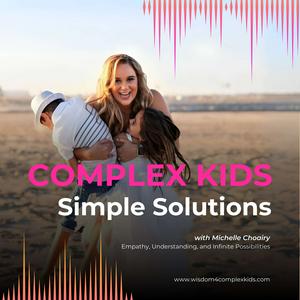
Obtenha o aplicativo gratuito radio.net
- Guardar rádios e podcasts favoritos
- Transmissão via Wi-Fi ou Bluetooth
- Carplay & Android Audo compatìvel
- E ainda mais funções
Obtenha o aplicativo gratuito radio.net
- Guardar rádios e podcasts favoritos
- Transmissão via Wi-Fi ou Bluetooth
- Carplay & Android Audo compatìvel
- E ainda mais funções


Complex Kids, Simple Solutions
Leia o código,
baixe o aplicativo,
ouça.
baixe o aplicativo,
ouça.





